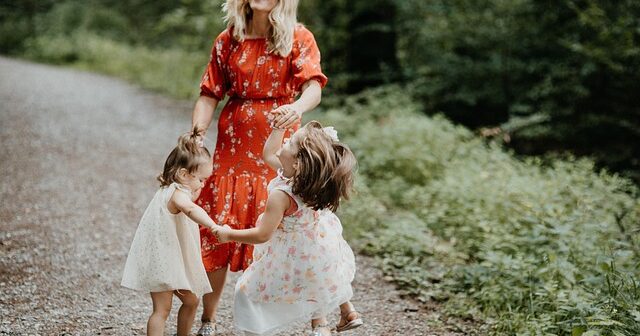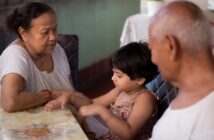1. Introduction
When a grandparent receives a mesothelioma diagnosis, the emotional shockwaves can reach far beyond the patient. While adults may understand the complexities of cancer, children often experience confusion, fear, and grief in ways they may not express clearly. As one of the most aggressive and fatal asbestos-related cancers, mesothelioma disrupts families on every level—including the special bond between grandparents and grandchildren.
Supporting children through this experience requires patience, transparency, and tailored emotional care. Many children view their grandparents as a source of love, wisdom, and stability. When that foundation is shaken by illness, they may struggle with a range of emotions from anxiety to guilt. Navigating this difficult time is critical not just for the child’s well-being, but also for fostering a compassionate and connected family response.
In this article, we explore how families can guide children through a grandparent’s mesothelioma diagnosis, drawing on psychology, family therapy, and mesothelioma care research. You’ll find helpful strategies, expert-backed insights, and resources to support your loved ones during this life-changing journey.
2. Background & Context
Mesothelioma is a rare and aggressive cancer caused almost exclusively by exposure to asbestos fibers. It primarily affects the lining of the lungs (pleural mesothelioma), but can also impact the abdominal cavity, heart, or testicles. Because of its long latency period—typically 20 to 60 years after exposure—mesothelioma is often diagnosed in older adults, especially those with occupational exposure during the mid-20th century American Cancer Society.
Many grandparents diagnosed with mesothelioma worked in industries like shipbuilding, construction, and manufacturing. This makes the disease not just a personal medical crisis, but a reflection of occupational health failures that resonate across generations NIOSH. In family dynamics, this often results in children seeing their once-healthy, active grandparents become suddenly ill—often requiring hospice or intensive care.
Children process illness differently based on age and maturity. Young children might not grasp the permanence of terminal illness, while teenagers may feel angry, helpless, or overwhelmed. According to the National Cancer Institute, children often mirror adult behavior during family crises, which underscores the importance of clear, calm, and age-appropriate communication.
With over 3,000 new mesothelioma cases annually in the U.S. alone, the number of families affected is significant. This makes it crucial for caregivers to understand how to support children psychologically and emotionally during this time.
3. Key Highlights from the Report
Though no official “report” is cited here, several leading sources, including cancer support organizations and pediatric psychologists, have published key findings and recommendations for how to help children cope with the terminal illness of a loved one. Below are the most important takeaways for families navigating a mesothelioma diagnosis:
a. Age-Appropriate Conversations Matter
According to the American Academy of Pediatrics, children should be given truthful but age-appropriate explanations of the grandparent’s condition. Using euphemisms like “Grandpa is just tired” can lead to confusion or mistrust. Instead, simple, honest language like “Grandma has a disease called mesothelioma that makes her very sick” provides clarity and opens the door to further questions.
b. Routines Offer Emotional Safety
The Child Mind Institute emphasizes maintaining regular routines during a family health crisis. Keeping consistent schedules for meals, homework, and bedtime offers children a sense of security when everything else feels uncertain. Stability in daily life helps them cope better and process their emotions.
c. Emotional Expression Should Be Encouraged
Children often internalize their emotions, fearing they might upset others. Experts from CaringInfo advise that parents create safe spaces for kids to talk about their fears, sadness, or even anger. Drawing, journaling, or storytelling can be powerful tools for emotional release in younger children.
d. Involvement Reduces Anxiety
Allowing children to participate in caregiving—such as drawing a picture for their grandparent or helping with small tasks—can give them a sense of agency. The National Hospice and Palliative Care Organization suggests that feeling useful can reduce feelings of helplessness and build emotional resilience.
e. Schools and Counselors Are Critical Allies
Communicating with your child’s teacher or school counselor ensures that their emotional and academic needs are being supported. Many schools offer grief support groups or individual counseling, especially when a child experiences anticipatory grief due to a terminal diagnosis.
f. Professional Help May Be Necessary
If a child shows signs of depression, withdrawal, or behavioral changes, seeking support from a licensed child psychologist may be necessary. Organizations like Psychology Today offer directories to find therapists who specialize in childhood grief and trauma.
4. Deep Dive on Top Resources for Support
Families do not need to go through this journey alone. Several trusted organizations provide resources, counseling, and support services for children dealing with the illness or loss of a grandparent due to mesothelioma.
1. The Mesothelioma Applied Research Foundation
This nonprofit offers family-oriented educational materials about the disease, treatment options, and caregiving. While their focus is on adult patients, they include resources for talking to children and offer community forums where caregivers share their experiences Mesothelioma Applied Research Foundation.
2. CancerCare for Kids
An arm of CancerCare, this program provides free, professional support services to children and teens affected by a cancer diagnosis in the family. Services include individual counseling, therapeutic play, and workshops—all staffed by licensed oncology social workers.
3. The Dougy Center
A leader in childhood grief and loss education, The Dougy Center offers peer support groups, age-specific literature, and toolkits for families. Their resources help kids explore feelings of anticipatory grief and understand the dying process in ways that are developmentally appropriate.
4. Camp Kesem
While more focused on children with a parent who has cancer, Camp Kesem welcomes children dealing with any close family member’s diagnosis. The program combines therapeutic counseling with fun summer camp experiences, helping kids form bonds with others who understand their pain.
5. Hospice and Palliative Care Teams
Hospice organizations often have on-staff child life specialists or grief counselors who can meet with children and families. These professionals are trained to explain medical processes and help children cope with witnessing a loved one’s decline National Hospice and Palliative Care Organization.
Each of these resources offers something unique—from psychological support to interactive activities. Leveraging them not only strengthens the child’s coping skills but also provides parents and guardians with professional backup during an emotionally draining time.
5. Strategic Takeaways for Caregivers
Supporting a child through a grandparent’s mesothelioma diagnosis isn’t just about managing the medical crisis—it’s about preserving emotional health across generations. The following strategies offer a practical roadmap:
- Be transparent, not frightening: Offer honest but gentle explanations of the diagnosis, prognosis, and treatment plan. Avoid sugarcoating or overpromising outcomes.
- Keep communication open: Let children ask questions and express emotions without fear of judgment.
- Normalize emotions: Let them know it’s okay to feel sad, angry, or confused. Share your own emotions to show vulnerability is safe.
- Stick to routines: Structure and predictability help children feel safe even when life feels chaotic.
- Encourage connection: Foster opportunities for the child to spend meaningful time with their grandparent through calls, storytelling, or memory-making.
- Seek support: Utilize counselors, school psychologists, and online communities for guidance.
When caregivers stay calm, informed, and emotionally present, children are far more likely to develop the coping skills they’ll need—both now and in the future.
6. Future Outlook or Market Trends
As awareness of mesothelioma increases, so does the demand for holistic family support systems. Several trends are shaping the future of pediatric mental health care in the context of family cancer diagnoses:
a. Growth of Teletherapy for Grieving Families
Post-COVID, virtual counseling has made emotional support more accessible. Organizations like BetterHelp and Talkspace now offer child-focused therapy sessions tailored to grief and trauma.
b. Integration of Child Life Specialists in Oncology Units
More cancer treatment centers now include child life specialists as part of their care teams. Their presence helps families explain diagnoses and treatment plans to children in ways they can understand and emotionally process.
c. Interactive Tools and Books for Children
Digital storytelling apps, therapeutic coloring books, and virtual reality experiences designed to educate children about cancer are on the rise. These tools help make abstract concepts like mesothelioma easier to understand, and more manageable emotionally.
d. Community-Based Grief Resources
Local churches, libraries, and community centers increasingly offer workshops, support groups, and reading materials for children grieving the illness or death of a loved one. Families are encouraged to explore what’s available in their area.
These shifts signal a growing recognition of how important it is to support children as part of comprehensive cancer care—not as an afterthought, but as a priority.
7. Conclusion + Call to Action (CTA)
Helping a child navigate the emotional challenges of a grandparent’s mesothelioma diagnosis is no small task. But with honesty, structure, emotional validation, and professional support, families can turn a tragic situation into an opportunity for deeper connection and healing.
Every child deserves to feel heard, safe, and supported—even during life’s most difficult moments. By taking advantage of trusted resources and practicing compassionate caregiving, you can guide your child through grief with strength and grace.
💬 If your family is facing a mesothelioma diagnosis, don’t walk the path alone. Join our Mesothelioma Family Support Group on Facebook for shared experiences, emotional tools, and expert advice tailored to families and caregivers. Because when we support each other, healing becomes possible.



